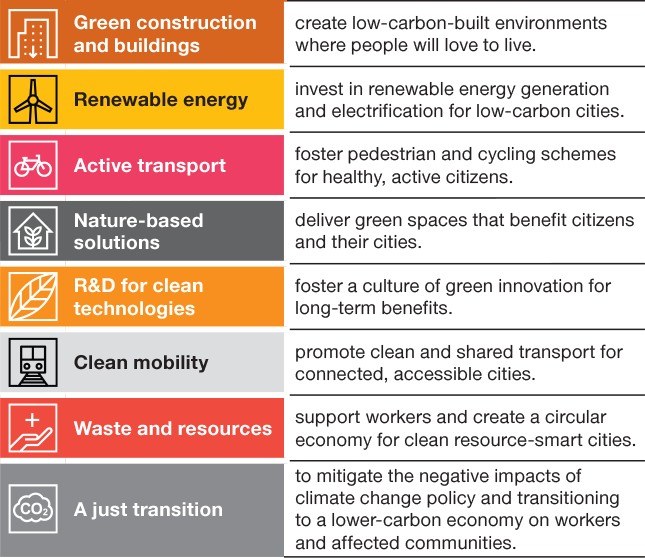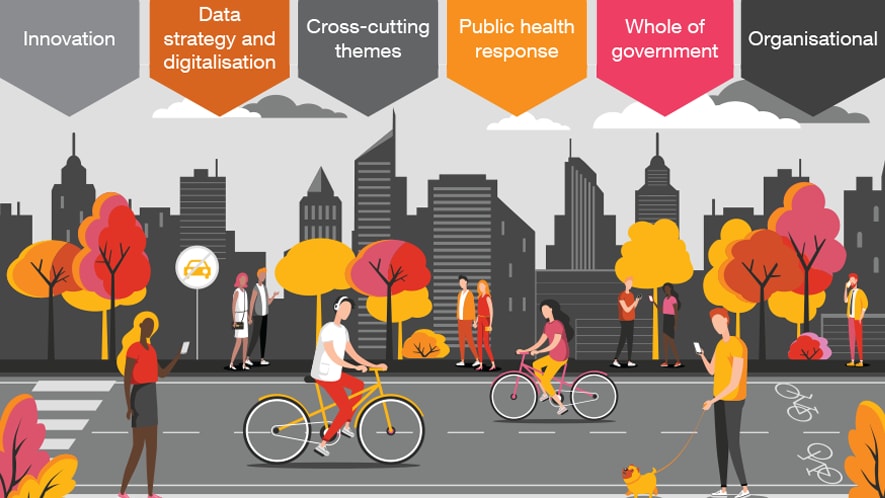Overview
As governments, businesses and society push forward their efforts to collectively move towards a more sustainable future, the role of cities and local government in this shift is increasingly necessary to ensure that these efforts become practical and of substance on the ground.
While the COVID-19 pandemic has caused significant economic and social disruption, it has also created a unique opportunity for designing recovery plans that allow us to build back better by ensuring a just transition to a world that is more socially, economically and environmentally inclusive. As organisations across the globe seek to rebound as quickly as possible from the devastating impact of the pandemic, sustainability will prove a crucial lever in building a very different post-pandemic world.
Building successful future cities means understanding the principles of resilience and learning to adapt to the shocks and stress that will challenge the viability of all cities in the future. Cities have always faced myriad challenges, from the tensions of sustaining economic activity to fostering social cohesion among large groups of people and everything in between.
Over the past few decades, the realities of climate change have moved to the centre of cities’ risk calculations. The compound effects of climate events, including the devastation of drought and the realities of heat waves and fires, for example, demonstrate the need for cities to consider their own resilience. This means learning to address interrelated risks, not only to survive them should they occur, but for cities to thrive in adapting to them. While climate change is an existential threat to cities, it also presents one of the greatest opportunities to foster meaningful reform to benefit residents in South Africa and across Africa.
Projections estimate that 70% of the world’s population will live in cities by 2050. Much of this urbanisation will be in Africa, which will need to adapt its existing cities to the realities of this population growth while also managing climate change requirements.
The role of cities and acting towards net zero
Cities have specific responsibilities and should use these functions to help shift towards a lower carbon economy:
- City development strategies (CDS).
- Building public health and community resilience.
- Land-use planning (including housing and pedestrian access); can you create a ‘15-minute city’ in terms of accessibility and services?
- Infrastructure planning.
- Protecting natural capital and supporting green infrastructure.
- Working with businesses and industry.
- Transitioning in a way that is just and supports economic growth and job creation.

Source: Future-fit cities 2021
The role for cities, businesses and communities

Source: Future-fit cities 2021
How are we solving today at a sub national level while simultaneously contributing to the global and national agenda for a better tomorrow?
Contact us
